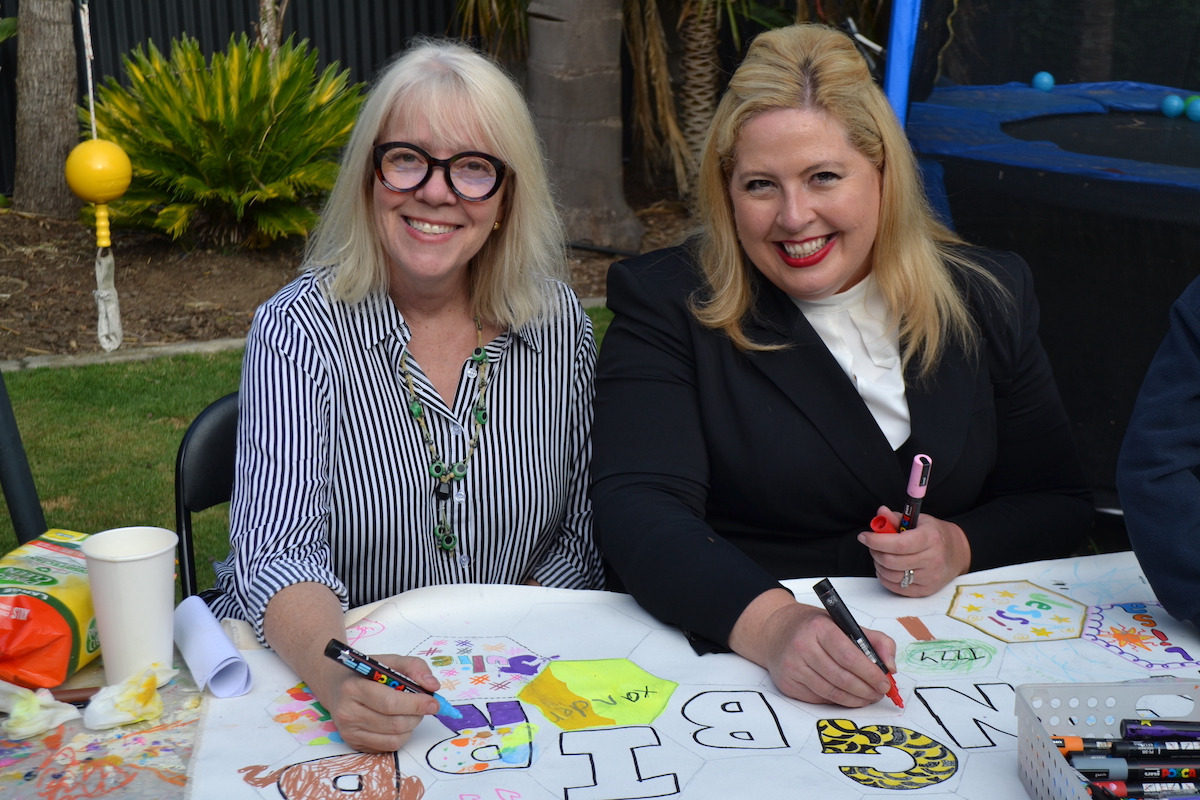
Flinders University’s Associate Professor Helen McLaren and her research colleagues joined SA Minister for Child Protection Katrine Hildyard for the recent launch of a fourth Mockingbird Family constellation in South Australia.
The Mockingbird Family is a ‘village’ model that recognises that it takes a village to raise a child. While fostering and kinship caring in Australia is usually and individualised endeavour, the Mockingbird Family has 6-10 foster and kinship families working together to collectively care for children. For the children, this is like having an extended family, with regular friends and a collection of adults looking over them, providing respite sleepovers, and growing together.
Associate Professor McLaren and College of Education, Psychology and Social Work colleagues Dr Emi Patmisari and Associate Professor Michelle Jones have been researching the implementation and roll-out of the Mockingbird Family constellations.At the launch event, Associate Professor McLaren and the Minister took time to make artwork together with members of Life Without Barriers, Department for Child Protection, foster carers, and children and young people in their care.
“It was great to see the children simply having fun, and the workers being so enthusiastic about the care model,” says Associate Professor McLaren.
“The children have friends, they are happy and it makes a difference to their development. Being a foster or kinship carer is not easy. Village models of foster and kinship care, such as The Mockingbird Family, reduce the burden. It recognises the challenges of caring for children, and the pressures of doing it alone, and the importance of localised support networks.”Dr Patmisari agrees. “We see children come together at Mockingbird Family events and enjoy life. It is producing good outcomes.” Associate Professor Jones says the assistance provided is invaluable. “The carers are supported to build networks that are invaluable for keeping good carers and reducing children’s placement instability.”

